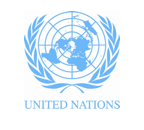Leading Corporate Law Firms Assist UN Special Representative to Map if and How Corporate Law fosters Business Respect for Human Rights
Published 01-26-09
Submitted by UN Secretary-General's Special Representative on Business & Human Rights
NEW YORK and GENEVA. - 26 January 2009 - Fifteen leading corporate law firms from around the world will participate in a UN-led effort to identify whether and how national corporate law principles and practices currently foster corporate cultures respectful of human rights. The announcement was made by the Special Representative of the UN Secretary-General (SRSG) on business and human rights, Professor John Ruggie.
A total of forty national jurisdictions will be explored, chosen in order to ensure broad geographical spread and a mix of common law, civil law and other legal traditions, as well as reflecting the expertise of the law firms involved. A list of firms and jurisdictions is provided below.
"This is extraordinarily important work," said Ruggie. "The relationship between corporate law and human rights remains poorly understood. The willingness of so many firms to provide their services pro bono in order to expand the common knowledge base indicates that corporate law firms worldwide appreciate that human rights are relevant to their clients' needs."
The fifteen firms will look at a range of corporate law topics as they relate to the business and human rights context, including incorporation; directors' duties; reporting and listing requirements; and shareholder engagement. Firms will be asked to explore not only what laws currently exist, but also how corporate regulators and courts apply the law to require or facilitate consideration by companies of their human rights impacts and preventative or remedial action where appropriate.
"Corporate law, like other policy domains that shape business practice, traditionally has been kept institutionally and conceptually separate from human rights concerns," Ruggie continued.
"Yet recent developments suggest that regulators are beginning to link corporate governance with management of social, environmental and ethical impacts, including human rights."
At the end of the mapping project, the SRSG will publish a compilation and analysis of the findings. In consultation with relevant stakeholders, he will then consider what recommendations to make to states and businesses. To this end, he plans to convene a multi-stakeholder expert consultation in the autumn of 2009, hosted by York University's Osgoode Hall Law School in Toronto.
Participating law firms
- Abeledo & Gottheil: www.abeledogottheil.com.ar
- Allens Arthur Robinson: www.aar.com.au
- Amarchand & Mangaldas & Suresh A. Shroff & Co:
www.chambersandpartners.com/Asia/rankings36.aspx?fid=3408&solbar=1 - Brigard & Urrutia: www.bu.com.co
- Carey & Allende: www.careyallende.com
- Clifford Chance: www.cliffordchance.com
- Cotty Vivant Marchisio & Lauzeral: www.cvml.com
- Creel, Garcia-Cuéllar, Aiza & Enriquez: www.creelmx.com.mx
- Edward Nathan Sonnenbergs: www.problemsolved.co.za
- Mah-Kamariyah & Philip Koh: www.mkp.com.my
- Mannheimer Swartling: www.mannheimerswartling.se
- NautaDutilh: www.nautadutilh.com
- Souza, Cescon-Avedissian, Barrieu & Flesch: www.scbf.com.br
- Stikeman Elliott: www.stikeman.com
- Weil, Gotshal & Manges LLP: www.weil.com
Africa: Angola, Botswana, Democratic Republic of the Congo, Kenya, Liberia, Mozambique, Nigeria, South Africa, Sudan.
Asia-Pacific: Australia, China (incl. Hong Kong), Taiwan Province of China, India, Indonesia,
Japan, Malaysia, New Zealand, Papua New Guinea, Singapore.
Europe & Middle East: Belgium, Denmark, Finland, France, Germany, Luxembourg, Netherlands, Norway, Russian Federation, Saudi Arabia, Spain, Sweden, United Arab Emirates, United Kingdom.
North America: Canada, Mexico, USA.
South America: Argentina, Brazil, Chile, Colombia.

UN Secretary-General's Special Representative on Business & Human Rights
UN Secretary-General's Special Representative on Business & Human Rights
In July 2005, UN Secretary-General Kofi Annan appointed Harvard professor John Ruggie as his Special Representative on Business and Human Rights. In 2008, Ruggie proposed a policy framework for better managing business and human rights challenges, based on three pillars: the state duty to protect against human rights abuses by third parties, including business; the corporate responsibility to respect human rights; and the need for greater access by victims to effective remedy, judicial and non-judicial. The Human Rights Council was unanimous in welcoming the framework, and extended Ruggie's mandate by three years with the task of operationalizing it. Ruggie's aim is to develop guiding principles for each of its three pillars; his mandate concludes in 2011.
More from UN Secretary-General's Special Representative on Business & Human Rights

